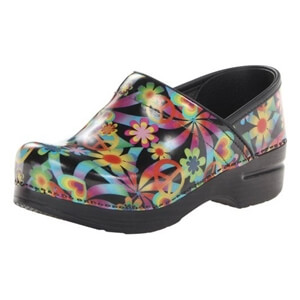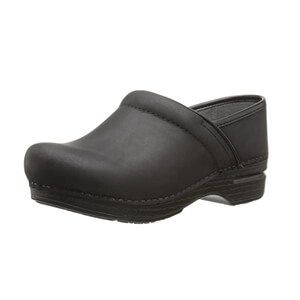Being a nurse is a highly challenging but gratifying career with many opportunities to change roles and focus on different aspects of nursing that you enjoy the most.
Once you’ve completed a few years as a registered nurse, your opportunities to move into other more advanced or specialized roles open up.

If you’re considering a career in nursing and want to know what it’s like to be a nurse and things you should consider before applying to nursing school, then keep reading.
Nurses Have A Huge Amount Of Autonomy
Being a nurse doesn’t mean you are a doctor’s assistant; most nurses have a huge range of autonomy to complete their own tasks and handle situations before doctors are even involved.
As nurses are rigorously trained and tested, even brand new nurses will be expected to take on tasks with limited direct supervision and approach other senior nurses if help is needed.

Nurses require excellent critical thinking as they will often be the first healthcare provider to review and triage patients.
While doctors have the final say in patient care, it’s often experienced nurses who help newer doctors with procedures and ensure that everything is done right, as everybody works on the same team to provide the best patient care.
You Can Apply For Any Roles You’re Qualified For
Once you’re a registered nurse, you are equal, and there are no limitations on the types of roles or environments that you can apply for. Some roles may require additional qualifications, but if you’re a registered nurse, then any standard registered nurse position is open to you.
Some believe that you must work your way up into better positions, and in some cases, this may be true, but only due to the hiring manager.
If your goal is to work in a hospital and you want a day shift, then you can apply as soon as you want with no waiting or additional experience required. You are given the required skills during your nursing diploma to take on any task that any other nurse may be taking on.
Roles Can Be Competitive
Some nursing roles can be extremely competitive, so while you can apply for any position you’re qualified for, it may be challenging to get precisely the role that you want.
Most nurses are hired by and want to work in hospitals, but there are a range of other areas, and roles that registered nurses can apply for, even straight out of nursing school.
Consider:
- Hospitals
- Clinics
- Emergency Transport
- Home Care
- Military Bases
- Corporate Offices
- Online Medicine
- Schools
- Educational Roles
- Correction Facilities
- Elderly Care Facilities
- Public Health Nursing
- Community Nursing
Competition will be a fact of your life as a nurse; you need to keep your options open and look for other opportunities outside of hospitals when demand or positions are just not available.
In some situations, a hospital environment may be your goal, but no positions are open due to hospital limits. However, hospitals still need nurses, and these often come through travel nurse companies, so working as a travel nurse in a hospital for a short period can assist ith experience or be a different nursing experience for you.
You Need To Switch Off Your Emotions
Nurses deal with and interact with all kinds of patients constantly, and in most cases, it’s not a patient’s best day, or the patient could be extremely sick and potentially die. This type of situation is a very common occurrence for a nurse, especially as time goes on and the emotional strain can build up.

Having to shoulder the emotions of losing a patient that you’ve gotten to know can be a huge obstacle for many nurses. It’s also emotionally draining dealing with problematic patients throughout your day.
The ability to switch off your emotions is a critical and required part of any nurse’s skillset so that one patient doesn’t interfere with your care of other patients or that you don’t take home the burden of all the sick patients that you’re helping.
Being professional and caring is important for the patient, but not personally caring or becoming attached to patients is part of a nurse’s requirements for a long career.
Your Day Will Be Nonstop
Nursing is a nonstop job with a vast range of responsibilities that you need to perform each day, and you need to handle all the new patients or issues that may arise in a constantly changing environment.

Being able to triage and prioritize patients and tasks is a critical part of being a nurse; you need to be constantly multitasking and assessing everything so that patients that require critical care aren’t left but also that no patient misses out on care or the treatment they need.
One thing that most nurses experience is a lack of time to rest and even eat throughout the day. So a nurse’s life is constantly hungry or eating snacks on the go. Eating before and after work is a good approach as during your workday, food will not be a priority.
Long Days Can Strain Your Body
Nurses may be working 12-hour shifts where they’re constantly on their feet and moving around performing a variety of tasks. Being on your feet, constantly moving, limited rest, and even no food can put a huge strain on your body and even lead to long-term problems.

New nurses may take some time to adjust to this type of environment and may not have all the appropriate equipment and skills to handle the strain. One of the most essential things that all nurses incorporate into their work-life is nursing shoes, which provide support and protection for a clinical environment.
Nurses Can Earn High Salaries
Nursing provides an excellent opportunity to make real money; the typical range of salary for a registered nurse is between $60,000 – $100,000 per year. A brand new registered nurse may start at $60,000 per year and, once experience is gained, can expect to reach $80,000 quickly.
The upper end of the nursing salary range is around $200,000 and requires speciality training and a number of years of experience. However, it is possible to be earning $200,000 as a nurse within 6-8 years, depending on your specialty.
You can also take the approach of working as a traveling nurse, where income can range from $3,000 – $8,000 per week.
One of the biggest factors for nurses is the location they work in, not only the hospital or type of facility but which state they live in. Nurses in places like California have incredibly high demand and can push their salaries up to $120,000 per year relatively easily.
Burnout Is A Real Issue For Nurses
Nurses are prone to burning out and needing breaks from certain roles or even being a nurse for a while. Nurses burning out has been heavily seen during the COVID pandemic, where working hours increased, patients increased, and even risk to nurse’s health increased.

As of 2022, around 12% of nurses are happy in their current roles, and 84% consider themselves burnt out and need to switch roles, leave nursing behind, or want administrators to make changes in the working environment.
Burning out is a typical symptom of nurses forgetting or being unable to keep a good work-life balance, which is extremely important to ensure you have a long career. Switching positions or types of environments you work in can lessen the strain if you start to feel burnt out.
Nursing Can Be Extremely Rewarding
There are many negatives about being a nurse, and it’s not a career for everybody as it requires specific mindsets and personal skills to get through the trying times. Enjoying the money isn’t always enough to keep people in the profession.
However, one of the best things about being a nurse is how rewarding it can be when things go right. Patients are coming to you for help, and in many situations, you can help them through education, medication, or even getting them to the right doctors to help improve their lives.
Having such a positive and measurable impact on a massive array of people can be truely satisfying and even out any of the negatives that nurses may experience.
Frequently Asked Questions
What are some common challenges nurses face in their profession?
Nurses face various challenges in their profession, both on a personal and a professional level. One of the common challenges is the demanding nature of the job, including long working hours, physically and emotionally demanding tasks, and the need to be constantly alert and attentive to patients’ needs. Nurses often face high levels of stress, as they deal with life-and-death situations, complex medical conditions, and the responsibility of ensuring patient safety and well-being. Additionally, healthcare environments can be fast-paced and dynamic, requiring nurses to quickly adapt to changing circumstances and work effectively as part of a multidisciplinary team. Other challenges include dealing with difficult or demanding patients and their families, navigating administrative tasks and documentation, and balancing the demands of work with personal life. Despite these challenges, nurses find fulfillment in the meaningful connections they build with patients, the positive impact they make on people’s lives, and the rewarding nature of their profession.
What are the typical work hours for nurses?
The work hours for nurses can vary depending on the healthcare setting and their specific role. Many nurses work in shifts, which can include day, evening, night, or weekend hours. Healthcare operates 24/7, and nurses are needed around the clock to provide continuous patient care. Shift lengths can range from 8 to 12 hours, although some nurses may work shorter or longer shifts depending on their schedule and the policies of their workplace. It’s important to note that nursing can be demanding, and nurses may need to be flexible with their schedules, including working on holidays and being on-call for emergencies. The nature of nursing work often requires adaptability and the ability to provide care at any time of the day or night.
What skills are essential for a successful nursing career?
A successful nursing career requires a combination of technical skills, interpersonal skills, and personal qualities. Technical skills include clinical knowledge, proficiency in medical procedures, and the ability to assess and monitor patients’ health conditions. Nurses should also possess strong communication skills to effectively interact with patients, their families, and the healthcare team. Empathy and compassion are crucial qualities that allow nurses to provide emotional support and comfort to patients during challenging times. Critical thinking and problem-solving skills are essential for making quick and informed decisions in high-pressure situations. Additionally, organizational skills, adaptability, and the ability to work well under stress contribute to a successful nursing career. Continuous learning and staying up-to-date with the latest advancements in healthcare are also important for professional growth and providing the best possible care to patients.
How can I prepare for a career in nursing?
To prepare for a career in nursing, there are several steps you can take. Start by completing a nursing education program, such as an associate degree in nursing (ADN) or a Bachelor of Science in Nursing (BSN) program. These programs provide the necessary knowledge and skills to become a registered nurse (RN). Additionally, consider gaining practical experience through clinical rotations or internships, which allow you to apply your classroom learning in real healthcare settings. Obtaining licensure is a crucial step, as you’ll need to pass the National Council Licensure Examination for Registered Nurses (NCLEX-RN) to become a licensed nurse. Continuing education and pursuing advanced degrees or certifications can also enhance your nursing career prospects. Lastly, seek opportunities to volunteer or work in healthcare settings to gain exposure and insight into the nursing profession. By taking these steps, you can lay a strong foundation for a successful nursing career.
You may also like
How long does it take to become a nurse?
Becoming a nurse is a fulfilling journey with varying timelines and requirements depending on your…
Nurse-Patient Communication: Strategies for Effective and Compassionate Care
The Crucial Role of Nurse-Patient Communication Nurse-patient communication stands at the heart of effective and…
Dansko Women’s Professional Clog Review
Dansko update about the current situation: “Dansko has resumed distribution center operations under challenging circumstances…
Birkenstock Boston Shearling Women’s Slip On Clogs Review
If you’re looking to look radiant when walking – but at the same time very…
Dansko Women’s Pro Xp Mule Shoe Review
When one is searching for some comfortable shoe options, one of the best options that…
What is the hardest course in nursing school?
A question that often looms large for nursing students and those considering this challenging yet…






